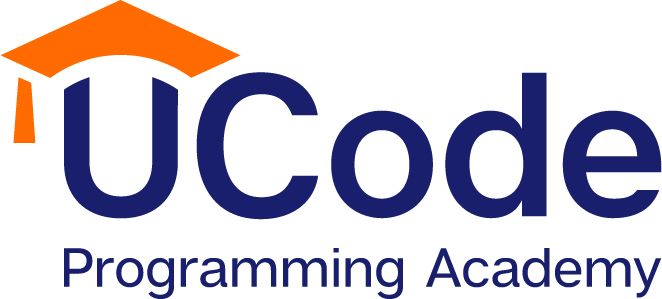Frequently Asked Questions
When did UCode start?
UCode began in Los Angeles, California in 2014 and was the first programming academy devoted solely to teaching younger students in the United States. We were founded by the Chairman of the Computer Science Department at the University of California at Santa Barbera, the Emeritus Professor of Computer Science at Berkley and a PhD in Machine Learning at UCLA. The academic orientation of our founders has from the onset shaped our pedagogy and how we teach.
We became noteworthy when Elon Musk asked us to teach his sons to code and then invited us to setup the coding math programs at the famous Space X school for gifted children.
Who owns UCode?
UCode is backed by leading venture firms including Frontier, DFJ, Bloomberg, Idea Labs, BAM, and executives from Google and leading tech companies.
Do you only work with gifted students?
All children are gifted at an early age with the ability to learn at a truly aggressive pace. This is particularly true of girls whose brains develop much faster than young boys. The challenge is that the “one size shoe” approach of our educational institutions dampens curiosity, enthusiasm and creativity. Our pedagogy addresses this by allowing students to progress at their own pace with the support of a live instructor.
What is your pedagogy?
Kids learn to code by coding. They do not learn to code b playing games on Tynker or Roblox. Learning to code is like learning the piano or learning how to skate - it takes practice and persistence as practice is at the core of developing competence. The more you practice, the better you become. Technique is important and in our programs, technique is communicated through curriculum.
When learning to play the guitar you learn to play the chords as these are the basic building blocks of music. Coding also has basic building blocks – what we call the “Core Computer Science Concepts”. The great guitarist is playing the same chords as the beginner, he is just more practiced. Fundamentals are fundamentals.
How is UCode different from other coding programs?
At UCode, our goal is to teach your student to think computationally. Core computational thinking concepts such as decomposition, pattern recognition, and abstraction are introduced as well as programming tools such as flowcharts.
Students who learn how to think computationally increase their ability to think logically, think spatially and think creatively. By learning to think and solve problems in a structured manner, UCode students build a solid foundation for academic and career success.
Tell me about your curriculum?
We are "curriculum centered" with clear learning objectives and formalized assessment against which to assess student progress. Our curriculum has been developed by faculty from leading universities (Berkley, UCSB, Cornell Engineering, UCLA, Fudan University) and has been experienced by thousands of students in Europe, Asia and the USA. It is now in its 5th generation.
At the heart of UCode's philosophy is the belief that kids learn to code by coding. UCode's courses are designed to be interactive and hands-on to encourage active learning and help students retain information more effectively. We emphasize the fundamental concepts that form the foundation of good code. We believe in the power of practice. Just as musicians and athletes hone their skills through repeated practice, so do coders.
Are the courses on Zoom?
Yes. Courses are live on zoom using UCode's Learning Management System (LMS). This is a state-of-the-art platform that integrates several resources to provide a comprehensive learning experience:
• Coding Exercises: The LMS includes coding exercises that allow students to apply what they've learned from the instructional videos. These exercises provide hands-on experience and help reinforce the concepts taught.
• Project Steps: To help students understand how coding concepts are applied in real-world scenarios, the LMS guides students through various project steps. These projects provide practical experience and help students see the results of their coding efforts.
• Quizzes: Quizzes are integrated into the LMS to assess students' understanding of the material. These quizzes provide immediate feedback, helping students identify areas they need to focus on.
• Mid Term and Final Exams: Formal assessment is required of students participating in our programs.
• Instructional Videos: UCode's LMS features instructional videos that explain coding concepts in an easy-to-understand manner. These videos serve as a valuable resource for students to learn at their own pace.
• Coding Exercises: The LMS includes coding exercises that allow students to apply what they've learned from the instructional videos. These exercises provide hands-on experience and help reinforce the concepts taught.
• Project Steps: To help students understand how coding concepts are applied in real-world scenarios, the LMS guides students through various project steps. These projects provide practical experience and help students see the results of their coding efforts.
• Quizzes: Quizzes are integrated into the LMS to assess students' understanding of the material. These quizzes provide immediate feedback, helping students identify areas they need to focus on.
• Mid Term and Final Exams: Formal assessment is required of students participating in our programs.
How many students in a class?
Between 6 and 12 depending on the course. For example, basic courses for early learners would have no more than 6, while a advanced course geared to older students may have a higher number

